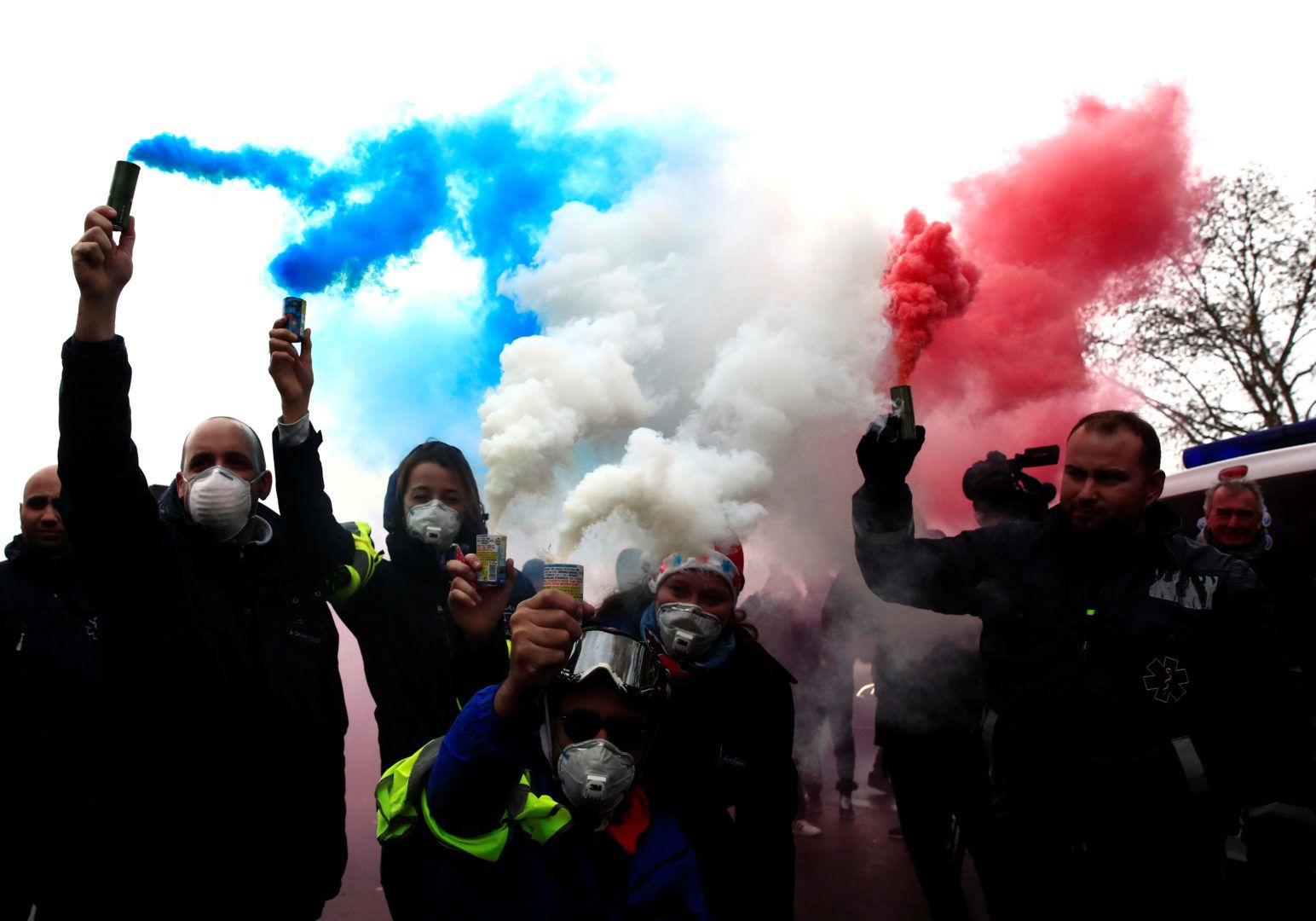December 05, 2018
Yesterday, the French government suspended a proposed hike in carbon taxes amid a mounting wave of protests and violence across the country.
The about-face is a major defeat for President Macron, who rode to power 18 months ago on the promise to take on France's sclerotic political and economic institutions.
The extent of the defeat and what the decision means for France and the EU more broadly remains to be seen. Here are the two crucial questions to keep an eye on:
Will the pause appease protesters? The protests have been fueled by a deep resentment with the French political system that goes beyond the narrow issue of higher gasoline prices. They may not be so easily quelled. President Macron, once the leader of his own political insurrection, has become a symbol of the establishment. That's a perception that can't be fixed through a minor change in policy, and protests are set to continue this weekend.
What does it mean France and the EU? Mr. Macron's government now faces its own pocketbook problem–it can no longer count on the $3.3 billion in revenue expected from the tax. That will make it tougher for it to bring its budget in line with EU-mandated rules and could force it to delay changes to the pension and housing systems that would boost the economy and benefit the very middle-class citizens who've taken to the streets. Problems at home could also make it harder for Macron to pursue much-needed reforms to the EU that have so far made little progress.
The bottom line: In the coming days, Macron will portray the protesters as an unruly mob intent on sowing disorder; the protesters will paint him as the enemy of the people. This is only the beginning of pitched battle for France's future.
More For You
- YouTube
On Ian Explains, Ian Bremmer takes a look at the growing surge in global conflict and the ripple effects of so much violence, war, and armed struggle throughout the world.
Most Popular
Think you know what's going on around the world? Here's your chance to prove it.
French President Emmanuel Macron, German Chancellor Friedrich Merz, Ukrainian President Volodymyr Zelenskiy, U.S. Special Envoy Steve Witkoff and businessman Jared Kushner, along with NATO Secretary-General Mark Rutte and otherEuropean leaders, pose for a group photo at the Chancellery in Berlin, Germany, December 15, 2025.
Kay Nietfeld/Pool via REUTERS
The European Union just pulled off something that, a year ago, seemed politically impossible: it froze $247 billion in Russian central bank assets indefinitely, stripping the Kremlin of one of its most reliable pressure points.
Big global stories. Real conversations with world leaders. Our award-winning global affairs show, GZERO World with Ian Bremmer, goes beyond the headlines on the stories that matter most. Here’s a look back at the 10 most quotable moments from this year’s episodes.
© 2025 GZERO Media. All Rights Reserved | A Eurasia Group media company.
